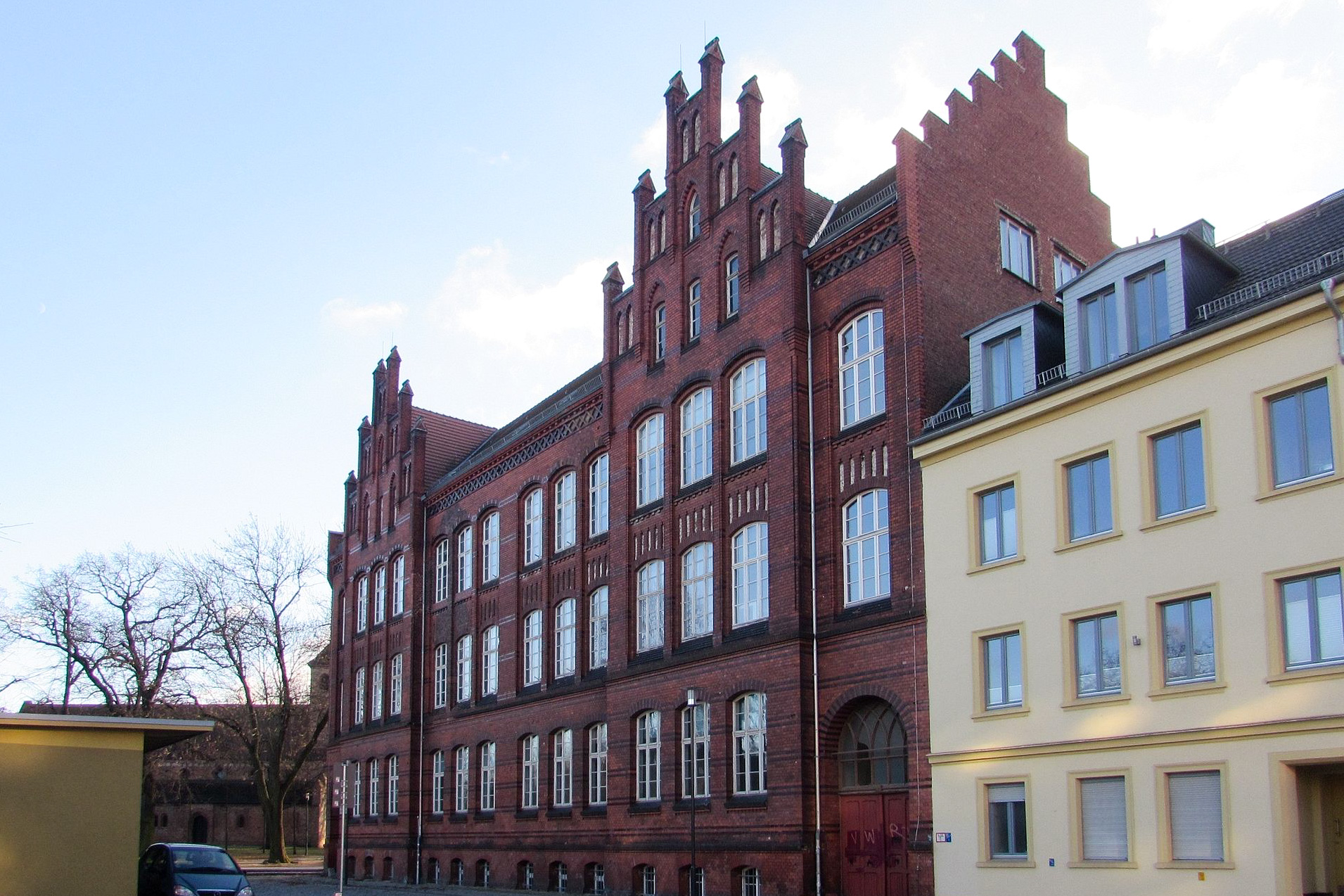 Brandenberg University of Medicine. Photo: Wikipedia.org
Brandenberg University of Medicine. Photo: Wikipedia.org
At the end of November (from 30 November to 2 December), Associate Professor, Dr. habil., Andreas Jüttemann from Brandenberg University of Medicine, in Germany, visited the VU Faculty of Medicine for a few days. Currently a researcher, he is also a medical and urban planning historian and a graduate in psychology. His visit was part of the Erasmus+ programme and during his lectures for the students and staff of the faculty, the scientist shared his knowledge on several topics.
The first thematic block covered the cholera pandemics of the 19th century that swept across central and eastern Europe. The researcher made original observations on the incredible cholera treatments used by physicians of the time and on the still emerging understanding of water-borne infectious diseases. He also discussed the development of a particular Berlin hospital during the Cold War – the construction of a new type of hospital in West Berlin, funded by the US, that was the subject of fierce medical and public debate at the time.
A special interest was shown and interesting questions were raised on such topics as leprosy hospitals in Klaipėda during the 19th and 20th centuries and the so-called seaside nursing hospitals-lazarets for children with scrofula and rickets. Until the mid-20th century, before the invention of an effective treatment for leprosy, leprosy patients were still being cared for in closed hospitals and hospices. The seaside nursing hospital-camps for children with scrofula and rickets were mainly for working-class children and were characterised by strict discipline and elements of military education.
During a live meeting with Associate Professor, Dr. habil., Andreas Jüttemann, the staff of the Centre for Medical Ethics, Law and History and the Department of Anatomy, Histology and Anthropology exchanged ideas for cooperation. Points of contact between existing research in the history of medicine, ethics and palaeopathology in Lithuania and Germany were discussed, raising hypotheses for possible further research.
 From the left: Associate Professor, Dr. habil., Andreas Jüttemann, Associate Professor, Dr. Aistis Žalnora, Dr. Margarita Poškutė and Prof. Dr. Eugenijus Gefenas. Photo: Aistis Žalnora personal archive
From the left: Associate Professor, Dr. habil., Andreas Jüttemann, Associate Professor, Dr. Aistis Žalnora, Dr. Margarita Poškutė and Prof. Dr. Eugenijus Gefenas. Photo: Aistis Žalnora personal archive
